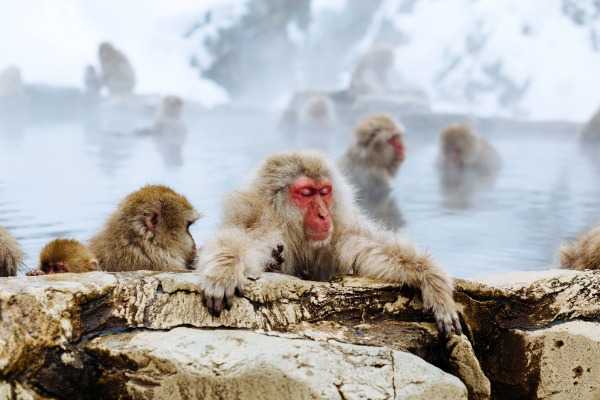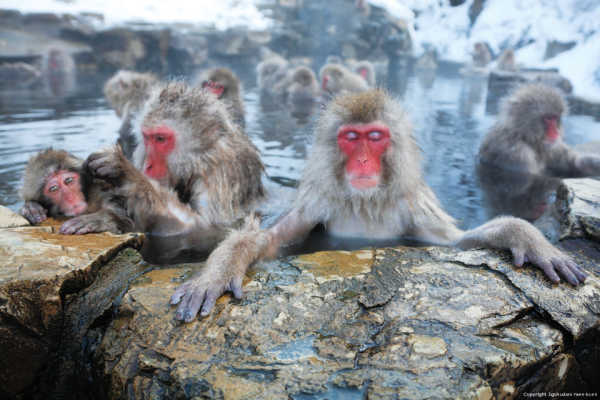According to Nietzsche, treating life as an experiment is the perspective of a thinker. It is a mindset that enables us to see life decisions as an experiment, a series of trials and tests. Success and failure are just test results. What do you think? Can you live life like a thinker?
“A thinker sees his own actions as experiments and questions ― as attempts to find out something. Achievement and failure are for him answers above all.” ― Friedrich Nietzsche
Being a thinker or a freethinker are similar concepts. They describe a mindset based on sound reasoning and scientific evidence. Seeing life as an experiment is similar to the concept of detachment in Buddhism. Let’s investigate these ideas in a little more detail.
Seeing Life Decisions as an Experiment
One of the characteristics of the mindset of a freethinker is the ability to see things from a secondary perspective. This perspective means viewing it from outside ourselves. It is the practical ability to embrace life changes through experiments as a path to enlightenment.
In Yogic tradition, this state of mind is called “witnessing.” It marks an important step in self-development. You are able to separate your awareness into two separate points of observation. With this portion of awareness, we see ourselves from a second detached perspective. Then, we can truly understand life decisions as an experiment.
The Buddhist path of detachment is the idea of observing thoughts and emotions. Not caring about things doesn’t make you a Buddhist. Being a Buddhist means learning to release attachments to things. It has nothing to do with what we value. An unattached perspective helps us see the value in everything. Concentration and meditation help us achieve this perspective.
The philosophy of Stoicism from Greek tradition teaches a similar concept. It asks us to accept the things we cannot control and let go of attachment to temporary things. We should attach emotions to things outside of our control. Like Buddhism, Stoicism emphasizes self-discipline through meditation. The goals are similar as well, inner peace and the pursuit of virtue. One must seek to live honorably.
The Chinese philosophy of Taoism has the same idea. Taoism teaches us to focus on harmony by letting go of personal desires and attachments. Boy, that sounds familiar. Taoist teachings emphasize the concept of “wu wei,” or effortless action, to take things as they come.
Zen Buddhism gets the same idea across in a different way. The practice of Zen focuses on being present and in the moment. One of the exercises is learning to observe your self-talk without judging them. It takes some time to achieve this detached mindset, but it is worth the effort.
Summary of Life Decisions as an Experiment
There must be something worth learning here. Several philosophies have similar themes and ideas about letting go and detachment. There is wisdom here that we should follow. In fact, the concept of detachment is a common doorway to reaching enlightenment. Letting go is the same concept as treating life as an experiment. Explore these similarities for yourself. It will give you a different perspective on your values.
Experimental Questions Examples

To approach the subject of existence from a proper perceptive, we need to ask the right questions. We want to ask questions that will help us see life from a secondary perspective. This list of questions about our existence will help you start treating life decisions as experiments.
1. What is the purpose of life?
The question of purpose has puzzled great thinkers for eons. Are our lives predetermined? Or do we have free will to create our own meaning and purpose?
2. Can we truly know ourselves?
Yes, if you know how to look for the answers. A good place to start is with the Enneagram. It’s a tool that you can use to identify the scripts of your personality and instincts. Another way to learn about ourselves is by keeping a journal. A journal helps us see the patterns of thinking and behavior over time. Journaling helps you spot trends of unhealthy thinking and positive growth.
3. Are we alone in the universe?
Arthur C. Clark has a wonderful quote about this question. He says there are only two possibilities. Either we are alone in the universe, or we are not alone, and both prospects are equally terrifying. If we are the only intelligent life in the universe, it seems like a waste of space, doesn’t it? Those who have had encounters with aliens have a firm opinion about this, but the rest of us are still waiting for ET.
4. Is there life after death?
This question the the really money-maker for religions. The afterlife is the all-time best-selling intangible asset. Some believe in heaven, hell, or reincarnation, while others see death as a natural end without further existence.
5. Can we change the course of our lives?
Yes. Learning and self-development can change the course of your life. The problem is most people aren’t lifelong learners. Most people prefer to be entertained rather than put any effort into their development.
6. Can we find true happiness?
The answer to this question depends on how you define happiness. A lot of billionaires aren’t happy because they don’t have it all. But some people who live on the streets say they are happy with their friends and their next meal. You can be happy right now for no reason at all.
7. What role does fate play in our lives?
Destiny doesn’t play as much a role as social inequity. If you are born into a family with great monetary resources, you don’t care. Just ask Donald Trump. If you are born without status and money, then social inequity rules your life. You have fewer options. Things don’t have to be this way, but until we change from a culture based on the rule of capitalism and commercialism, nothing will change.
8. Are we the creators of our reality?
Even if we are on the bottom of the social equity ladder if we have a strong will and intent, we can change the trajectory of our lives. You need to believe your thoughts and beliefs shape can change your world.
9. Will I benefit if I learn to embrace life changes through experiments?
Yes, definitely. A detached but caring mindset helps you focus on the things that matter. You won’t get caught up in the rat race of commercialism.
Summary of Questions from an Experimental Point of View
We encourage you to ponder these experimental questions examples. Ask yourself what you need to do to achieve the detached mindset Nietzsche calls the thinker. Everyone is in a different place. Take the time to reflect on these questions before you read further. Perhaps you are drawn to study one of the paths we outlined.
Treating Life as an Experiment in Consciousness
Now let’s use the mindset of the thinker on the practical issues of daily life. Here’s how you do it. Instead of asking yourself what you should do, try framing your decisions as experiments. Come at the topic from different aspects. Then, take a moment to brainstorm and see what answers you get.
For example, if you’re struggling with a career decision, you could ask yourself, “What would happen if I pursued a new industry?” or “What outcomes can I expect if I stay in my current job?” Brainstorming on these questions will illuminate different scenarios and potential outcomes. Here are some additional examples:
1. What if I moved to a different city for a fresh start?
2. How would my relationships be affected if I had a different career path?
3. What changes would a new career do to my mental health and well-being?
4. What would happen if I took the risk of using my passion instead of my current career path?
By asking multiple questions framed as experiments, you can gain insight into what will really make you happy. Treating life as an experiment helps you approach uncertainty with curiosity. It will always yield a number of options you may not have considered.
So, the next time you’re faced with a difficult decision, consider viewing it as an experiment. Come at the issue with different questions. Test different options, gather data, and be open to adjusting your course based on the results. When you cultivate this mindset, you will start to approach life decisions as an experiment with confidence.
How to embrace life changes through experiments
It’s easy to talk about the philosophy of seeing life changes as an experiment, but it’s not always easy to do. We may be harboring beliefs that conflict with this mindset. Perfectionism often gets in the way.
When we surrender to the process of experimenting with life, we let go of the need for control and perfection. We become more open to trying new things, taking risks, and stepping outside of our comfort zones. By embracing life like it is an experiment, we shift our perspective. This philosophical vantage point allows us to uncover our true passions, strengths, and purpose. Perfectionism gets in the way of this process. It overlays the values and desires of others that taint our perspective.
Imagine approaching each day with a sense of curiosity and wonder, like a scientist conducting an experiment. What will you discover about yourself and the world around you? What lessons will you learn along the way? By being open to the unknown and willing to explore different paths, life can become a rich and fulfilling journey.
Of course, embracing life as an experiment doesn’t mean that we abandon all responsibility or structure. It simply means being flexible, adaptable, and open-minded. It means being willing to pivot, adjust, and learn from our experiences.
So, how do you start seeing life from this perspective? Begin by letting go of expectations and embracing uncertainty. Step outside of your comfort zone and try new things. Take calculated risks and be open to failure. Remember that each experience, whether positive or negative, offers valuable data. View every experience as an opportunity for growth and learning.
Each day presents us with countless opportunities to make decisions, big or small, that can shape the course of our lives. We are older each day, and aging creates changes. Viewing life decisions as an experiment changes our perspective. It helps us to approach decisions with a sense of curiosity rather than fear or self-doubt.
As we embrace life changes through experiments as a way of life, we become more comfortable with difficult decisions. We can let go of the pressure to have all the answers all the time. Instead, we can see each decision as a learning experience, regardless of the outcome.
Things don’t always go as planned. In this way, life is just like a scientific experiment. And that’s okay. The important thing is that we learn from the results so that we make better decisions in the future.
When we can see life decisions as an experiment, we develop resilience and adaptability. We can make decisions from a second perspective that helps us make the best decision in any circumstance. This mindset also builds our confidence in all areas of our lives.
Learn to embrace change, take risks, and see where the journey takes you. Who knows what amazing discoveries and growth you might uncover along the way?
In Conclusion
Take some time and ponder the experimental questions examples. Learn to embrace life changes through experiments in consciousness as a way of life. Don’t let outdated beliefs get in the way. When you finally grasp life decisions as an experiment, you’ve gained the perspective of a thinker.
